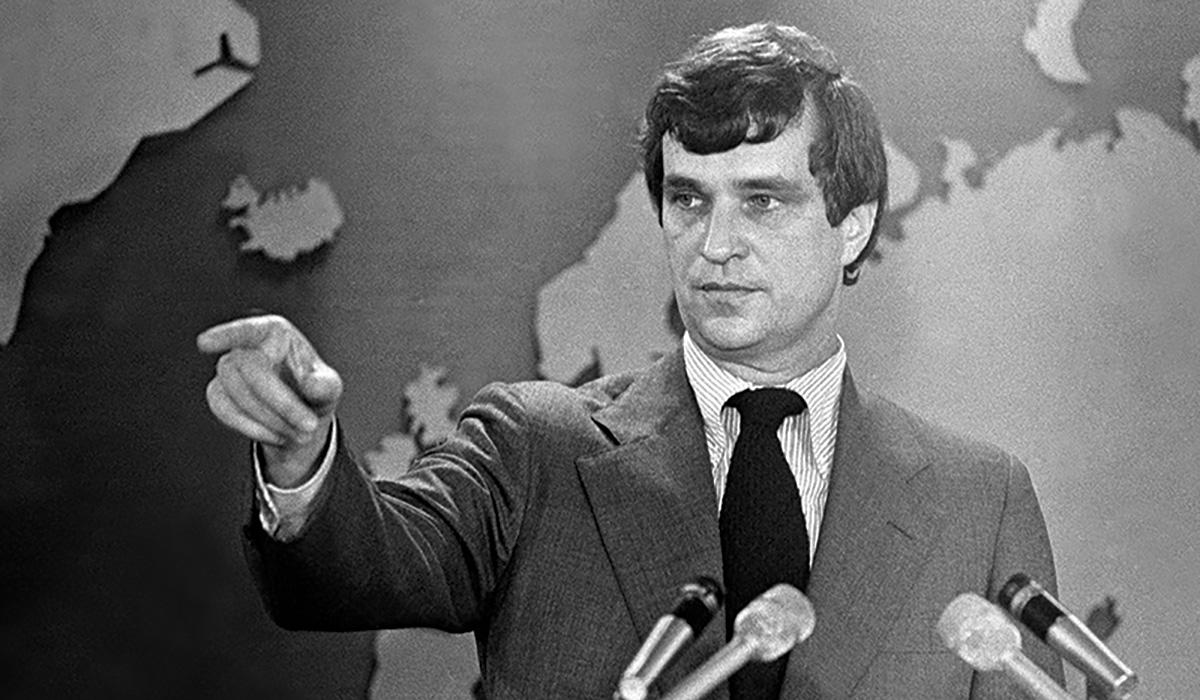April 7, 1935 — May 11, 2023
Hodding Carter ’57 came to the nation’s attention as the face of the U.S. government’s response to the Iran hostage crisis, in which militants took 52 Americans hostage on Nov. 4, 1979. As the State Department’s chief spokesman, Carter was a constant presence on television as Americans experienced international humiliation nightly for more than a year.
But Carter — no relation to Jimmy Carter, the president at the time — was more than just a face on TV. He came to his State Department post after a crusading career as a Mississippi newspaperman, and he followed his government service with a lengthy career in journalism, philanthropy, and teaching.
“He was larger than life — a million gigawatts,” says his daughter, Catherine Carter Sullivan ’80. “He loved talking about things that mattered to him, and he loved learning from those he met along the way.”
William Hodding Carter III was born in New Orleans, where his mother came from a prominent family, and he grew up with two younger brothers in Greenville, Mississippi. His parents founded and ran a newspaper that, following mergers, became the Delta Democrat-Times. It was a liberal voice in a conservative and racially polarized region.
Carter attended high school in Greenville and at Phillips Exeter Academy in New Hampshire, then enrolled at Princeton, majoring in the Woodrow Wilson School and performing with the Triangle Club. After graduation, he spent two years in the Marine Corps.
Initially, Carter seemed ambivalent about following in his parents’ journalistic footsteps. Carter did not focus on journalism as an undergraduate, though he became friends with future New York Times columnist R.W. (Johnny) Apple ’57. Eventually, though, he joined the Democrat-Times, writing some 6,000 editorials over 17 years.
Periodic death threats led both of Carter’s parents to tote shotguns for their safety, and Carter experienced much the same when he took the paper’s reins. For a time, Carter “thought it necessary to place a small piece of Scotch tape across the gap between his car hood and his car so he could tell whether, during the night, someone had lifted the hood to place a bomb,” wrote Luther Munford ’71, a Mississippi lawyer who remained friends with Carter after interning at the Democrat-Times.
Former colleagues recall Carter as a character out of journalism lore. Lew Powell remembers Carter “waving fistfuls of grease-penciled tearsheets” and lambasting him for burying the news of Richard Nixon’s bombing of Cambodia in May 1970 on the paper’s back page.
“You could even shout at him, and although he’d shout back, he never maintained any sort of a shit-list,” Glenn Garvin wrote of his experience working for Carter as a young reporter in the 1970s. “Five minutes after the argument was over, he’d forgotten about it.”
Carter began engaging directly in politics, co-chairing a racially diverse group of Democrats that represented the state at the 1968 convention in Chicago. In 1976, he helped Jimmy Carter narrowly win the state, which led to his being appointed assistant secretary of state for public affairs. In that office, he made a point of televising daily briefings — which he once called “a form of ritualized combat” — for the first time.
After Ronald Reagan won the presidency in 1980, Carter became an Emmy- and Edward R. Murrow Award-winning broadcast journalist for a variety of networks. He also wrote widely as a columnist. From 1997 to 2005, Carter headed the John S. and James L. Knight Foundation, a journalism philanthropy.
Carter concluded his career teaching at the University of North Carolina beginning in 2006. Carter “was committed to educating the next generation to engage in civil discourse and to engage in public life,” says Daniel Gitterman, a UNC public policy professor who helped establish the Hodding Carter Public Service Fellowship at the university.
Carter maintained a lifelong connection to Princeton, serving as a trustee from 1983 to 1997. In that post, he successfully championed a proposal to use the University endowment to fund scholarships that kept students from having to take on debt. “He was the conscience of Princeton,” his daughter Catherine says, “and he argued until he couldn’t argue any more.”
Louis Jacobson ’92 is a senior correspondent with PolitiFact.


